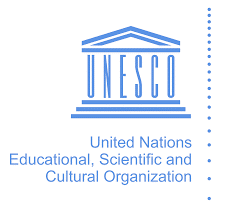All
National Library Digital Fellowship 2024 (Funded)
- Fellowship
- View on Map
- National Library Board posted 1 month ago
- Posted: May 26, 2024 -Accepting applications
Opportunity Detail
-
Language Requirement Not required
-
Gender MaleFemale
-
Level Non-Degree /Short program
-
Eligible Region/CountriesSponsored links
Opportunity Description
The National Library Digital Fellowship is a scheme that supports study in the burgeoning field of digital humanities using Singapore’s National Library and National Archives assets.
They are eager to work with academics and researchers on initiatives that use computational techniques and digital technology to provide new perspectives on the history, arts, and cultures of Singapore and Southeast Asia.
Brief Details:
- Provided by: National Library Board
- Location: Singapore
- Deadline: 14 June 2024
- Duration: 6 months
- Gender: Any
- Type: Fellowship
- Eligible Nations: All
About Fellowship:
The Fellowship will be granted for a duration of six months. Fellows are not permitted to submit a research topic that they have previously finished for a master’s or doctoral thesis, have a fellowship, or take a parallel job (however sabbaticals are permitted). Unless otherwise agreed upon, awarded Fellows must begin their Fellowship undertaking within three months of the grant.
Applicants are encouraged to submit project ideas that highlight the potential for learning and research using their holdings by making efficient and significant use of digital tools and techniques. This could entail data visualization, mapping, digital storytelling, text, visual, and/or audio analysis, and more.
Projects could map and investigate the relationships between collection pieces and information to provide fresh perspectives on a subject, such as an occasion, era, person, or social group in Singaporean history. Projects may potentially improve the information available about collection objects (e.g., through crowdsourced annotation or image processing) and/or provide new opportunities for the community to find and engage with collection items.
Similar Opportunities:
- Call for Applications: Jefferson Fellowships 2024
- The Harold W. McGraw Fellowship for Business Journalism for Fall 2024 (Grant: up to $15,000)
- Sir Harry Evans Global Fellowship 2025 in Investigative Journalism at Durham University
Research Areas:
Areas of research include but are not limited to the following:
- Comparative study of early Singapore/Malayan publications, e.g. patterns of language use and/or themes in literature
- Social history through photographs, oral histories and other relevant collections
- History and networks of early communities in Singapore
- Analysis of Singapore newspapers
- Place histories in Singapore
Benefits:
- Fellows will receive a monthly stipend of S$3,500 to help cover living expenses, local transit costs, and photocopying costs.
- A one-time relocation package of $1,500, a one-time return flight up to $1500 (reimbursement basis), and a monthly lodging allowance of up to $3,500 (reimbursement basis) will be given to foreign fellows in addition to their stipend.
- Up to $1,500 (paid back on a reimbursement basis) will be given to fellows for the purchase of content and software that will be used throughout the fellowship and/or be directly relevant to the project. The Fellowship does not cover the cost of buying hardware, such as computers and electronics.
- For the project, fellows are in charge of securing all necessary licenses, permits, permissions, and other authorizations before using any images, copyright materials, or other assets or rights belonging to third parties.
All Fellows will also be provided with the following:
- A computer with internet connection is available at the Lee Kong Chian Reference Library research area.
- Access to metadata about the collection and digitized resources (subject to reproduction and use conditions).
- Introductions to librarians who can offer advice on pertinent resources and collections.
Eligibility Criteria:
- International and domestic applicants are eligible for the Digital Fellowship.
- Individuals or groups (two people submitting a joint application) may apply. Each individual or group is only permitted to submit one application.
- Applications from librarians, curators, historians, professors, and independent researchers with proven track records of success in their chosen fields of study are encouraged and welcomed by the library.
- Candidates must possess the necessary digital abilities to execute and finish the project.
Obligations of the Fellowship:
All Fellows are required to sign a Fellowship agreement abiding to the following:
- During their Fellowship, they must labor at the Library for a minimum of 75% of the time.
- Make at least one public presentation based on their fellowship study to the staff and once to the general public.
- Give the National Library Board a project midpoint update.
- Provide a functional prototype. This could include, but not be limited to, a website, a mobile app, or software scripts or codes (such as R or Python scripts) for machine learning and visualization, depending on the project. The National Library Board will, if feasible, archive every prototype.
- Provide a 4,000–6,000 word research report within three months of their scholarship expiring.
- Place all codes and data utilized for the fellowship in the National Library together with the necessary paperwork.
- Permit the National Library Board to publish research findings, including repackaging content in alternative media, when appropriate.
- When necessary, editing adjustments will be made to all papers submitted for publication.
- Within one month following the conclusion of the Fellowship period, submit a written evaluation of the experience to the National Library Board.
- When needed, help the Library publicize the Fellowship. This might entail social media posts, video interviews, and other publicity-generating activities.
- In order to foster research capability inside the National Library, Research Fellows will also act as mentors to National Library Board employees and offer guidance on areas where collections are lacking.
- Give a copy of any published work that comes from the research you did during the fellowship to the Library. The National Library of Singapore’s sponsorship must be acknowledged in the published work.
- The Research Fellow may only use the dataset and content provided to them for the Fellowship. Every precaution will be made to prevent unauthorized access to the dataset and content. At the conclusion of the Fellowship, the dataset and content must be completely deleted from any storage media.
- The grantee will lose their monthly stipend and any other costs they incurred during the Fellowship if they are unable to fulfill any of the requirements.
You May Like These Opportunities:
- Call for Applications: Jefferson Fellowships 2024
- Excellence Scholarships of the Government of Mexico for International Students
- Webster Vienna Private University New Student Scholarships
- Italian Government MAECI Scholarships To Study in Italy 2024/2025
Selection Criteria:
The following standards will be used to evaluate fellowship applicants:
- Original research is required.
- Collections from the library and archives are used for research.
- The project can be finished in six months.
- According to referees, transcripts, research experience, and other academic accomplishments, the applicant demonstrates a high degree of ability.
- Application should demonstrate a thorough comprehension of the suggested study topic in the proposal.
- The applicant possesses the necessary digital skills to execute and finish the suggested project.
General Guidelines for Overseas Candidates:
As an international candidate who has been selected, you must undertake the following:
- Put your signature on the fellowship contract.
- Apply for the necessary work permit (with NLS assistance).
- Purchase your airline ticket.
- Find a place to stay
- Obtain a work permit.
- Open a bank account.
- Purchase internet and phone plans.
- Getting to NLS After being awarded, candidates will get additional information.
Documents Requirement:
Each application must include:
- Application Form,
- CV:
- Specifics of research grants that have been granted in the past and in parallel.
- Information about presented professional seminars, conference papers, and public talks.
- A list of significant works.
- Information about previous and ongoing participation in digital humanities initiatives
- A comprehensive plan that includes the following and is no more than ten pages (page count does not include references or annexes)
gives a thorough overview of the suggested research topic, outlining the NLS and/or NAS collections and resources to be employed as well as their importance to the study’s goals. If you plan to use datasets from other sources, please let us know.- Results to be expected and importance of the suggested study.
- Audiences for the project that is planned.
- How NLS and/or NAS collections will be promoted by the proposed project.
- Important project checkpoints and the approximate time to completion.
- Describe the primary tools and technology to be used (such as text analysis, machine learning, artificial intelligence, natural language processing, and visualization) along with your degree of proficiency (beginning, proficient, expert) in each area.
- Information on licenses or purchases of copyrighted materials and/or proprietary software, along with an estimate of the associated costs. While research can be conducted in other languages, research proposals must be presented in English.
- Two academic referees’ references should cover the following selection criteria:
- The skills, background, and qualifications of the applicant.
- The caliber of the candidate’s earlier work and publications.
- The applicant’s track record of finishing research assignments on schedule.
- Knowledgeable about pertinent sources in NLS and/or NAS, the applicant evaluates whether or not these sources are likely to assist the planned research.
- The project’s viability in light of the time, resources, and other constraints at hand.
- If the research will significantly advance the field’s understanding.
- How the project will draw attention to NAS, NLS, and its unique collections.
- Phone number, fax number, and email address for communication purposes.
- Candidates must designate a Subject Reviewer for their work and provide the reviewer’s contact information. After receiving feedback from their Subject Reviewer, fellows who are successful will send their articles to them so they may make the required changes before turning in their final reports. The Reviewer’s qualifications as follows will be applicable:
- The reviewer has published substantially in the applicant’s suggested field of study, is connected to a prestigious research institute or university, or both.
How to Apply?
Please send the above documents to the email mentioned below in order to apply.
Submission Email: [email protected]g
More Opportunities You May Like:
- Academic Staff Vacancy in Kabul University of Education and Training 2024
- AWS AI & ML Scholarship Program by Amazon
- Sexual Violence Research Initiative (SVRI) Research Grant 2025 (Up to $150,000 in Prize)
- IRENA Youth Logo Contest 2024
- Uplink Aquapreneur Innovation Initiative for Tackling Water Pollution and Its Environmental Impact
For more details, kindly refer to National Library Board’s website.
--
Related Opportunities
-
June 25, 2024





